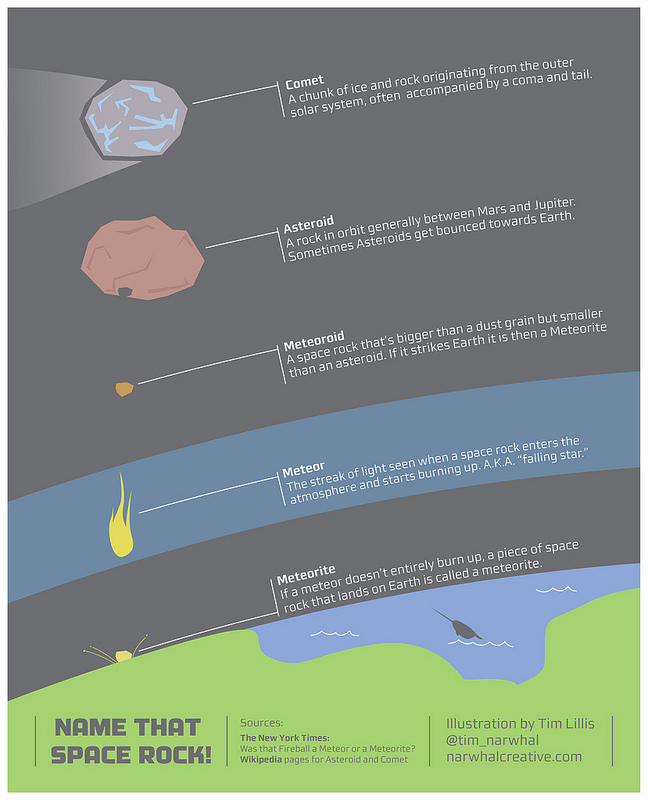FLPhotoCatcher wrote:Chris, you're incorrectly ascribing bogus statistical rules to scottjsw (and I). You say that the odds that "you will be outside, wearing a swimsuit, and eating a sandwich when a huge fireball passes over" is small, and it is. The earth is like a particular person, not all the people on earth. The same for the car crash analogy.
I don't think so. It is the
time of the event that is like a particular person. The odds of any coincidence happening at a specific time is very small, yet every coincidence
will happen at a specific time.
Extremely unlikely astronomical coincidences happen every day, including ones much, much more unlikely than a couple of relatively large objects passing so close in space and time. There are billions of possible unlikely events, and billions of years for them to occur. We simply notice certain ones and not others. It's a kind of selection bias.
The odds of a 50 meter (or larger) asteroid coming as close (or closer) to the earth as 2012 DA14 did is not known - I've heard it's once in one hundred years on average. Scientists say it is a "record close approach for a known object of this size."
But this is a misleading way of expressing things. What about a similar object that passes a little farther away? It would still be reported as a rare event. It's like the big deal made a few years back when Mars was particularly close. Closer than it will be for 100 years! Sounds impressive, but it's barely closer than a dozen other apparitions.
The Russian meteor was "the largest object known to have entered the Earth's atmosphere since the 1908 Tunguska event."
I think that's arguable. I have good reason to believe that larger infrasound events have been recorded. But regardless, it doesn't matter. Even if a coincident event like this only happens every 10,000 years, it's happened a half million times in the history of the Solar System. Things that happen with that frequency can be observed every day.

